How Soon Can I Refinance After Home Purchase
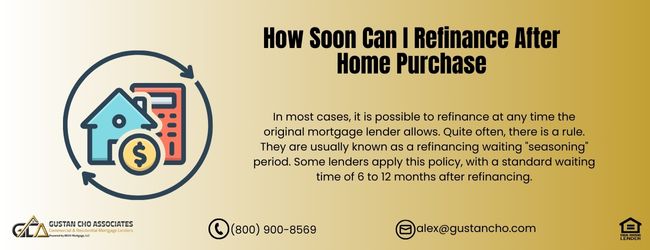
This article covers how soon can I refinance after home purchase. Many folks need mortgage refinancing after they purchase their home. There are various reasons why they seek a refinance mortgage after closing on their home. In this section, we will cover the reasons why some homeowners need to do a mortgage refinancing as soon as possible. There are home buyers who could not qualify for a regular FHA or Conventional loan, so they closed with a higher interest NON-QM Loan. The reason to refinance may be to get a non-occupant co-borrower out of the loan. Divorce and divorce decree may mandate for the person awarded the home to refinance the ex-spouse out of the mortgage note. Some folks have higher interest rates due to having lower credit scores when they first purchased the home.
Cash-Out Refinance After Home Purchase on Government Loans
Many homeowners do not like the FHA Mortgage Insurance Premium and would like to refinance their FHA into a Conventional loan. Homeowners may need funds and tap into the equity in their homes by doing a cash-out mortgage refinancing. Credit scores is the primarily factor on mortgage rates on government loans. Loan-to-value does not impact mortgage rates on government-backed loans. Many folks are under the impression that government loans are not affected by pricing adjustments on lower credit scores because a government entity insures them. Loan-to-value does not impact credit score pricing but credit scores do. HUD allow up to an 80% LTV on cash-out refinance on FHA loans. To be eligible for cash-out refinance after home purchase, there is a one year waiting period. VA loans require a one year waiting period after home purchase to do a cash-out refinance. Conventional loans allow to do a cash-out refinance after home purchase after six months. USDA loans does not allow cash-out refinance after home purchase. All loan programs allow to do a rate and term refinance after home purchase after six months. Speak With Our Loan Officer for Cash-Out Refinance After Home Purchase on Government Loans
Minimum Credit Score Requirements On Mortgage Refinancing
HUD only requires a minimum of a 500 credit score. Fannie Mae and Freddie Mac require a 620 minimum credit score. VA does not have a minimum credit score, and minimum credit score requirements are up to the lender. There are no credit score requirements on VA loans. VA loans are the best mortgage loan program in the nation. There is no minimum credit score requirements on VA loans. There is no maximum debt-to-income ratio on VA loans for borrowers with strong residual income. There is no maximum loan limit on VA loans. To get an approve/eligible per Automated Underwriting System Findings, a 580 credit score for VA loans is recommended. USDA loans does not have a minimum credit score but most lenders prefer a 580 credit score. The higher the credit score is, the lower mortgage interest rates will be on all loan programs.
Government Loans are FHA, VA, and USDA Loans
However, mortgage interest rate hits do apply to government loans as well as all other loan programs. Homebuyers who close on their home and can get their credit scores higher can qualify for mortgage refinance after home purchase at lower rates. Refinancing home loans to a lower rate can save tens of thousands of dollars over the course of the mortgage loan. However, there are minimum waiting periods to refinance after home purchase. For FHA, VA, USDA mortgage loans and conventional loans, there is normally a six-month waiting period to refinance after home purchase on a rate and term mortgage. You can do a cash-out refinance after home purchase on conventional loans after six months. FHA and VA loans require one year waiting period to do a cash-out refinance after home purchase. USDA loans only allow rate and term refinance.
FHA To Conventional Mortgage Refinancing
Homebuyers who had great credit but had high debt-to-income ratios were forced to close with FHA Loans instead of Conventional loans. HUD, the parent of FHA, allows a mortgage applicant to have debt-to-income ratios as high as 46.9% front-end and 56.9% back-end. HUD, Fannie Mae and Freddie Mac allows for non-occupant co-borrowers to be added on to the main borrower in the event that borrowers have high debt-to-income ratios. VA loans allow for co-borrowers but the co-borrower need to be married to the veteran borrower.
Credit Score Guidelines For Refinance After Home Purchase
With conventional mortgage loan programs, the maximum debt-to-income ratio allowed is 45% DTI normally, VA loans allow. 100% cash-out refinancing for veteran borrowers. The minimum credit score allowed for conventional mortgage loans is 620. The minimum credit score allowed is 580 for a 3.5% down payment on home purchase. With FHA loans, there is an upfront mortgage insurance premium as well as an annual FHA MIP throughout the life of the loan. The annual FHA mortgage insurance premium for a FHA loan is 0.55%. Many folks who close with a FHA can see if they are eligible to qualify for a conventional loan. This way, they can eliminate the monthly FHA mortgage insurance premium. Click here for Refinance After Home Purchase
VA and FHA Streamline Mortgage Refinance After Home Purchase
Homeowners with a current VA or FHA mortgage can refinance with another VA or FHA loan with Streamline. Streamline refinance mortgages are available for both VA and FHA loans. With our special streamlined mortgage refinancing, there is no income verification, and no appraisal required on VA or FHA loans.
Credit scores are used to price mortgage rates on VA and FHA streamline loans. Borrowers can have derogatory credit and recent late payments. However, borrowers cannot have been late on mortgage payments in the past 6 to 12 months.
Late payment of 30 days late is allowed in the past 12 months. However, borrowers need to have been timely in the past 12 months only with their mortgage payments. Borrowers do need a job. However, income will not be verified. It is a very simple straightforward fast refinance mortgage program for those who have a VA or FHA-insured mortgage loan. The waiting period to participate in the VA or FHA streamline refinance mortgage program with no overlays is six months from the original mortgage loan.
Cash-Out Refinance After Home Purchase
Homeowners can do a cash-out mortgage refinancing for FHA, VA, and Conventional loans. The maximum amount of cash-out allowed on FHA-insured mortgage loans is 80% loan-to-value. The maximum cash-out on conventional mortgage loans is normally 80%. Two-to-four unit homes have lower loan-to-value caps on cash-out refinance after home purchase versus single-family homes. Some lenders will do up to 80% loan-to-value on a conventional mortgage loan with no lender overlays. Other lenders will limit their cash-out mortgage loans to 75% loan-to-value to due lender overlays. The Veterans Administration allows 100% LTV on cash-out mortgage refinancing.
Waiting Period on Refinance After Home Purchase
The following applies to homeowners who just purchased a home and need to do a refinance after home purchase. Homeowners may intend on doing major renovations to the property, hoping the market value will go up.
Many homeowners want to refinance after home purchase and intend on doing a cash-out refinance. There is a minimum six-month seasoning requirement with a cash-out refinance after home purchase on conventional loans.
FHA hoans require a one-year waiting period to qualify for FHA cash-out refinance after home purchase. Homeowners who need to qualify for a mortgage with a lender with no mortgage overlays on government or conventional loans can contact us at GCA FORUMS Mortgage Group at 800-900-8569. Please text us for a faster response. Or email us at gcho@gustancho.com. GCA FORUMS Mortgage Group has no lender overlays on FHA, VA, USDA, and Conforming loans. We are available 7 days a week, evenings, weekends, and holidays. Speak With Our Loan Officer About Waiting Period On Refinance After Home Purchase
Frequently Asked Questions on Refinance After Home Purchase
This section addresses some questions and answers developed to deal with the myth of the time limits for refinance after home purchase:
Question:
When Can a Borrower Refinance After Home Purchase?
Answer: In most cases, it is possible to refinance at any time the original mortgage lender allows. Quite often, there is a rule. They are usually known as a refinancing waiting “seasoning” period. Some lenders apply this policy, with a standard waiting time of 6 to 12 months after refinancing. However, there are instances where certain expenditures may be refinanced earlier if allowable conditions are met.
Question:
Is there a restriction that will not permit me to refinance the home immediately after purchase?
Answer: Yes. In theory, you may refinance after purchasing the house the same day. This is called no seasoning refinance. However, it depends more on your refinance and the lenders’ rules. Most lenders, however, prefer you wait for six months at least before attempting this, especially for cash-out refinancing. When you refinance to take advantage of interest rate changes or better loan terms, this could be allowed by some lenders for six months or earlier than that.
Are there any common waiting periods for the different refinancing processes?
This article explores this issue. Waiting periods differ depending on the kind of refinancing. Rate and term refinance and waiting period. This type of refinancing has no official waiting period. However, most lenders advise that you should have owned that property for at least six months.
Cash-Out Refinance: The borrower must wait six and 12 months before resubmitting their request. There will be no encumbrance to combine a cash-out refinance with rate and term modification.
FHA and VA Streamline Refinance
A streamlined refinance considering the FHA or the VA loans shall take care of his matter and oblige borrowers to this arrangement for about 6 to 7 months upon disbursement of the loan.
Are there any exceptions to the waiting period for refinancing?
This article answers this one, too. Yes, there are some exceptions to the waiting period:
No-Seasoning Refinance
Some lenders might extend a no-seasoning refinance, especially on a rate and a term refinance. This area is mostly undeveloped.
VA Loans
The VA Interest Rate Reduction Refinance Loan (IRRRL) saves the previously outstanding debt from being refinanced. This enables borrowers to refinance earlier, for example, following 210 days or six payments.
FHA Streamline Refinance
It is also stated that FHA only allowed borrowers to charge interest on refinancing until refinancing payments were made on the first for six months.
What should I consider before refilling a few months after purchasing the home?
Answer: Factors to bring forth considerations before going for a refinance: It is pertinent to purchase money refinance details. Early settlement of mortgage loans draws additional costs in the region of 2%-5% of the home loan amount secured or collateralized. Do ensure such potential benefits outweigh such costs.
Changes in Interest Rates
Let me reassure you that seeking an equity mortgage refinance, that is, homes and property equity loan consolidation, offers something to gain in terms of lower interest rates than the existing mortgage or interest rates.
Loan Terms: Check how the lender’s new loan tenure rate offers c compared to what is currently enjoyed. The lengthening of the loan means the monthly installment to be paid increases. The length of time needed to repay the interest decreases.
Equity in the Home
After taking cash out or under other circumstances, equity must exist in the home for the cash-out refinance to be approved, typically at least 20% of the value.
Pre-payment Penalties
Check whether the existing mortgage contract states any pre-payment exit penalties. This would entail that the refinancing would be too expensive relative to the existing mortgage.
May I refinance if the house’s equity exceeds the principal repayments or the cost of the house at purchase?
Answer: Yes, so as long as the house in comparison to when it was bought or developed has become worth more than money, it is wholesome to refinance. For that matter, you get to cash out some of your housing equity) or get some money and refinance it to a more favorable rate or just more favorable borrowing terms. If just cash on hand is the challenge, then due to the increased home valuation, you may have the option of using cash-out refinance and cashing it for your home’s selling price.
Is it okay to refinance not long after you have bought a house?
Answer: In fact, a homeowner may refinance immediately after the purchase of the house if:
- The Interest Rates Lowered: If an individual has the option to refinance due to the current lower interest rates.
- This is because, economically, it will lower the monthly payments out of their pockets over the life of the mortgage than they should.
Improvement in Credit Rating
If positive credit score changes were experienced over the previous period, you may qualify and agree to a more acceptable edition of that document.
Advantageous Scenario
In this case, a perceivable outcome would be knowing that clients who foresee ever-increasing interest rates want to move from an ARM to a fixed-rate mortgage.
No Pre-payment Penalties: But comb through the existing loan for any such pre-payment penalties since engaging in the refinance may not be worth it.
The normal practice in the USA allows homeowners to purchase a house, seek a home loan, and then refinance within a short period.
How does the credit score impact the borrower and the practice of refinancing renting houses just after buying them?
Answer: Credit score is one of the core metrics employed in deciding when a borrower is ready for the tools of refinancing and the starting interest rate. If your credit report has recovered after buying houses for sale, you will be qualified for a better loan rate. Conversely, if a person gains some of those points, it will be more challenging for them to try and do a refinance since they might need to come up with better offers.
Will my credit scores be lowered every time I refinance after buying the house?
Answer: Yes, that is true, and refinancing also has several effects on a borrower’s credit score. For example;
Hard Inquiry: If one has decided to go ahead with debt consolidation, the lender will perform a hard loan application, which is also detrimental, at least for a few months.
New Credit Account: This can also affect your credit score, as a new credit obligation may increase the total credit. A new loan period will not positively affect your credit score. The new credit will negatively affect your credit mix and age, which may negatively affect how you are ranked.
The payoff of the Old Loans: One can also close a senior loan, which would help achieve and manage a better credit history, especially if it was an old mortgage account. However, once a new mortgage is managed, your score will eventually return to normal.
What is the risk of refinancing one’s mortgage too soon after buying a house? What is the upside?
Answer: In most cases, the rate at which a person is currently charged on a loan. The new interest rate on the loan and its other terms, such as the basis points, amount to the savings a person can gain from the refinancing exercise. For that purpose, making plans for refinancing at any period would be wrong. Such plans should be made after the rate of less than or equal to one percent can be offered. A timeline regarding the house’s occupancy is issued so one can recuperate the closure costs.
Instead of seeing the scenarios as prospects that focus on cash up front in a refinancing. Consider them as scenarios that focus on the cash cost and the relevant break-even point, where it becomes ideal for unlocking the cash from refinancing the mortgage.
Answer: The period in months, which equates to the present value of the investment, is referred to as the break-even cash flow recovery or payback period. This is done by taking the closing costs to be incurred when the refinance is obtained and dividing them by the savings made in months.
- The wait is 20 months if your closing costs accrue $3000.
- The monthly savings allow $150 ($3000 ÷ $150 = 20 months).
- If you plan on staying in your current place for more than that time, then it is obvious that you can refinance.
Can a refinancing mortgage be acquired even if she purchased a home using an FHA loan not long ago?
Answer: Yes. An FHA loan can be removed from the home after one has bought an FHA loan. This is because of the viewpoint due to the ease of accessing the FHA streamline refinance. There is a facility for utilizing cash almost immediately after the FHA Streamline Refinance. This does not request a new home appraisal. In most cases, one is required to wait at least six months after closing before using an FHA Streamline Refinance.
What exactly does cash-out refinance mean, and how long can one do it after purchasing a house?
Answer: It needs to be more complex since cash-out refinance refers to the practice where a borrower refinances a mortgage with a higher amount than they owe and takes out the difference in cash. In most cases, lenders may set a 6—to 12-month waiting period after acquiring a house before looking for a cash-out refinance. Also, there are specific factors like building up equity to a certain percentage, say 20 percent and up, after buying the house.
What are the disadvantages of going through a refinance executed very early, and what risks are incurred for a borrower?
Answer: Some risks, such as high closing costs, can be expected if you refinance too early after purchasing a home. Various closing costs can really counteract any advantages gained when refinancing unless they are worked out properly.
Pre-payment Penalties: There is a danger that refinancing will be very costly. This is because of the fees for early mortgage payback. Some mortgages do have pre-payment penalties.
Equity Concerns: If the home’s value does not appreciate as hoped, the borrower is limited in the quid pro quo extended to them regarding repayment.
Should I use the same lender when refinancing or look for different lenders?
Answer: Although many borrowers would want to go to the same lender for the refinancing since it involves less work on the part of the borrower and may save some of the Trusting Fees, one should go to other persuasive lenders. You are therefore assured that the interest rate and terms are most favorable. Some other lenders have different requirements, fees, and rates, so all available sides should be examined.
These FAQs should help you appreciate the important questions about the timing and the reason to refinance from the perspective of a potential home buyer.
Speak With Our Loan Officer for Cash-Out Refinance After Home Purchase on Government Loans



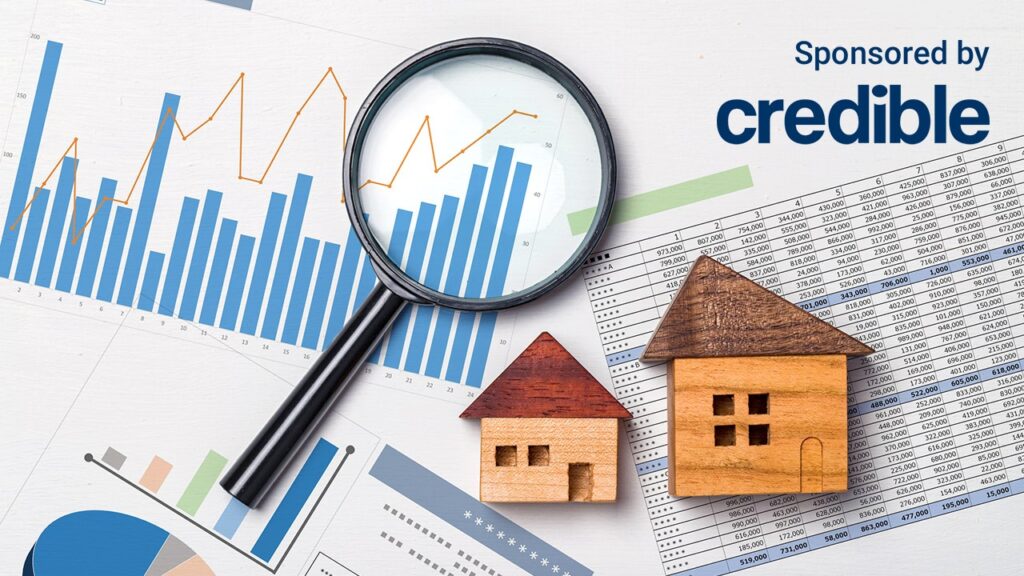
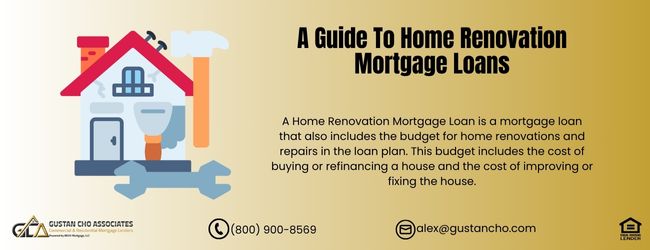
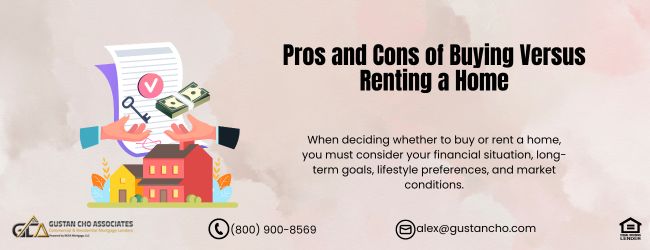
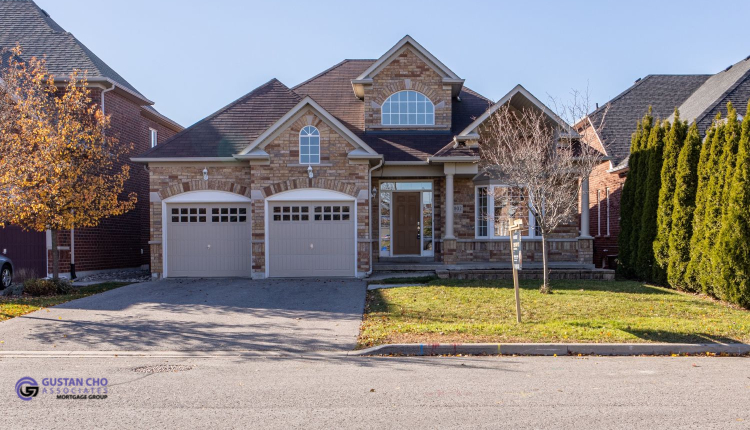
Responses